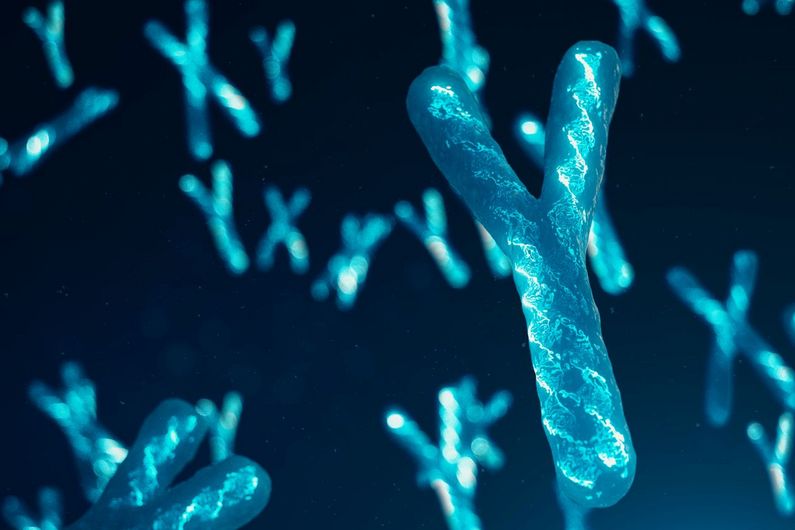The male Y chromosome does more than we thought
- Salle de presse
09/24/2020
- UdeMNouvelles
While the Y chromosome’s role was believed to be limited to the functions of the sexual organs, an UdM scientist has shown that it impacts the functions of other organs as well.
New light is being shed on a little-known role of Y chromosome genes, specific to males, that could explain why men suffer differently than women from various diseases, including Covid-19.
The findings were published this month in Scientific Reports by Université de Montréal professor Christian Deschepper, director of the Experimental Cardiovascular Biology research unit of the Montreal Clinical Research Institute.
“Our discovery provides a better understanding of how male genes on the Y chromosome allow male cells to function differently from female cells,” said Deschepper, the study’s lead author, who is also an associate professor at McGill University.
“In the future, these results could help to shed some light on why some diseases occur differently in men and women.”
Genes that females lack
Humans each have 23 pairs of chromosomes, including one pair of sex chromosomes. While females carry two X sex chromosomes, males carry one X and one Y chromosome. This male chromosome carries genes that females lack. Although these male genes are expressed in all cells of the body, their only confirmed role to date has been essentially limited to the functions of the sex organs.
In his study, Deschepper performed a genetic manipulation that inactivated two male genes on the Y chromosome, altering several signalling pathways that play important roles in certain functions of non-sex organ cells. For example, under stress, some of the affected mechanisms could influence the way in which cells in human hearts defend themselves against aggressions such as ischemia (reduced blood supply) or mechanical stress.
In addition, the study showed that these male genes performed their regulatory functions in a way that was unusual compared to the mechanisms generally used by most other genes on the non-sex chromosomes. Thus, instead of specifically activating certain genes by direct action at the genome level, the Y chromosome seems to affect cellular functions by acting on protein production.
The discovery of these differences in function may explain in part why the functions of male Y chromosome genes have so far been poorly understood, said Deschepper.
Males differ from females in the manifestation, severity and consequences of most diseases. A recent example of this duality is Covid-19, which has a mortality rate twice as high in men than in women.
About this study
"Regulatory effects of the Uty/Ddx3y locus on neighboring chromosome Y genes and autosomal mRNA transcripts in adult mouse non-reproductive cells," by Christian Deschepper, was published Sept. 10, 2020 in Scientific Reports.
About the IRCM
Founded in 1967, the Institut de recherches cliniques de Montréal (IRCM) / Montreal Clinical Research Institute is a non-profit organization that conducts fundamental and clinical biomedical research in addition to training high-level young scientists. With its cutting-edge technology facilities, the Institute brings together 33 research teams working in cancer, immunology, neuroscience, cardiovascular and metabolic diseases, systems biology and medicinal chemistry. The IRCM also operates a research clinic specialized in hypertension, cholesterol, diabetes and cystic fibrosis, as well as a research centre on rare and genetic diseases in adults. The IRCM is affiliated with Université de Montréal and associated with McGill University. Its clinic is affiliated with the Centre hospitalier de l’Université de Montréal (CHUM). The IRCM is supported by the Ministère de l’Économie, de la Science et de l’Innovation (Quebec Department of Economy, Science and Innovation).
Media contact
-
Valérie Morquette
Institut de recherches cliniques de Montréal
Tel: 514 987-5555 -
Jeff Heinrich
Université de Montréal
Tel: 514 343-7593














